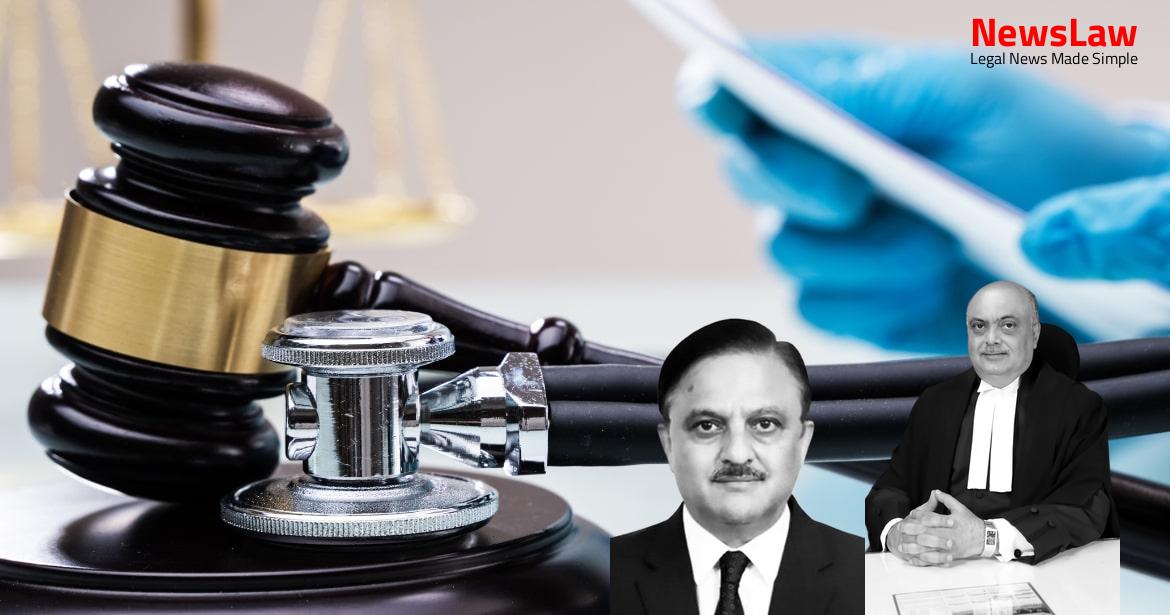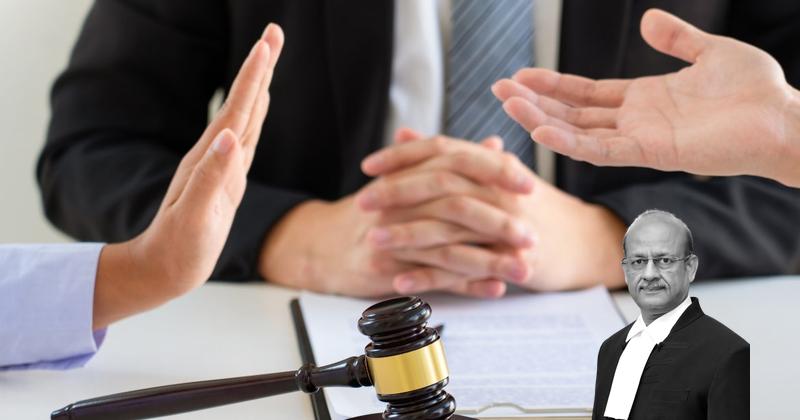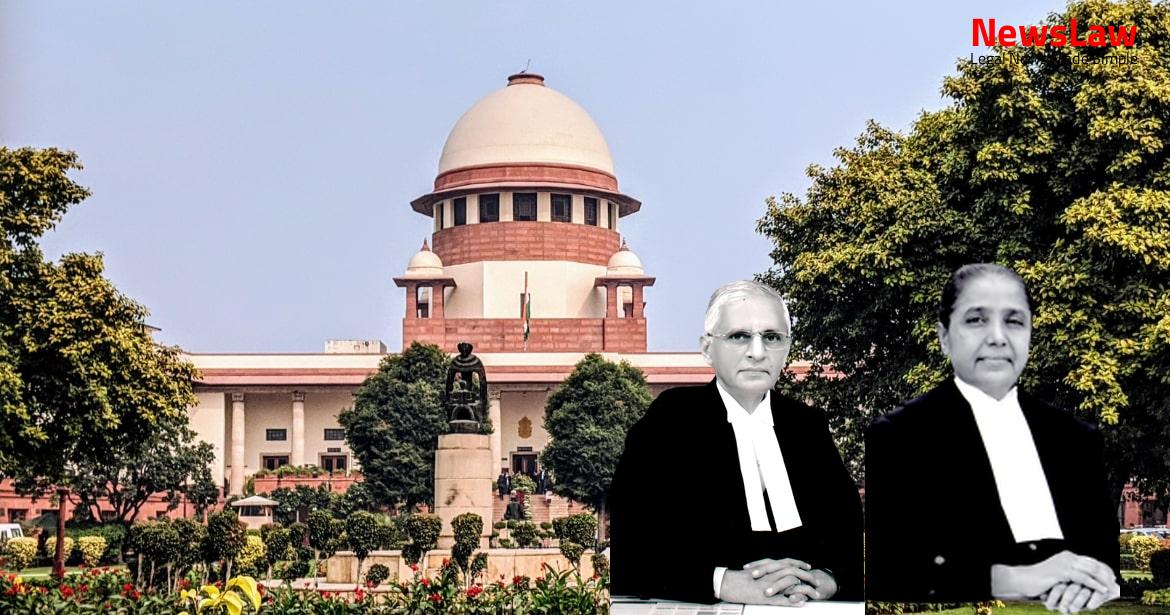In a recent landmark judgment by the Supreme Court of India, a decision was made regarding the bail grant in a Society Funds Misappropriation Case involving Original Name. The Court carefully considered the implications of the case and issued directives for the trial court to follow. This judgment sets an important precedent in cases of financial irregularities impacting a large number of depositors. Follow for more updates on legal proceedings.
Facts
- The present appeal arises from the Impugned Order passed by a learned Single Judge of the High Court of Judicature at Bombay, Nagpur Bench.
- The Impugned Order released Original Name on bail in connection with a case registered under various sections of the IPC and the MPID Act.
- Connected petitions were dismissed by a common Order dated 07.05.2024 in S.L.P. (Crl.) Nos.3946/2022 and 3938/2022.
- Bank statements of Petitioner No.1 seized from Vidarbh Konkan Gramin Bank.
- President of the Society colluded with Petitioner No.1 and his relatives invested a significant amount against which he received financial assistance which was not refunded.
- Prosecution alleges misappropriation of a large sum by the President of the Society and the statement of 798 depositors reveal funds were not returned.
- Petitioner No.1 received interest from the Society with no proper record in the accounts.
- Cash deposits and irregularities linked to Petitioner No.1 as per Forensic Audit Report.
- Prosecution categorizes financial irregularities under twenty-three different heads.
- Allegations of close association and conspiracy between Petitioner No.1 and the Society’s President.
- Concerns raised about potential influence on witnesses by Petitioner No.1 if granted bail.
Also Read: Acquittal of Accused in NDPS Case: Key Legal Points
Arguments
- High Court erred in not appreciating the role of the accused as stated in the charge-sheet and record of the case.
- The accused and his family members were the recipients of the amount from the Society’s office-bearers.
- The learned counsel for the respondent emphasized the innocence and lack of involvement of Original Names in the alleged crime.
- There is a lack of substantial material on record to prove any agreement between Original Names and the main accused.
- As per the Forensic Audit Report, Original Names and his family received a loan amount of ₹1,28,00,000/- only, with contradictions regarding the alleged amount received.
- No concrete evidence exists to incriminate Original Names in the case as per the submissions.
- The authenticity of the Forensic Audit Report is being challenged, awaiting the forensic examination report of Original Names’ handwriting/specimen.
- Original Names was not involved in the Society’s affairs and never held any position there, with no electronic evidence supporting the allegations.
- Being a senior citizen with medical issues, Original Names is undergoing treatment, making it unlikely for him to abscond.
- The charge sheet was filed before the bail grant, and Original Names is believed to be falsely implicated as the main accused has already been released on bail.
- The alleged loan was never transferred to Original Names, and there is a lack of proof that he benefited from the scam.
Also Read: State of West Bengal vs. Accused: Upholding Justice for Victims
Analysis
- The court analyzed the bail granted to the accused in connection with a financial irregularity case involving withdrawals of large amounts of money from a society where people with meager earnings had made deposits.
- The High Court granted bail with usual conditions without detailed reasoning on the potential prejudice or involvement of the accused in the alleged crime.
- It was observed that the accused had close business and other dealings with the President of the Society who was suspected of siphoning off funds with the aid of others, including the accused.
- Investigations revealed that funds withdrawn by the accused from the Society were later invested in properties under the names of his relatives.
- The High Court was reminded to exercise discretion judiciously and adhere to principles set by the Supreme Court in similar cases.
- Generally, courts are hesitant to overrule bail decisions made by lower courts unless there are substantial reasons to do so.
- The Supreme Court does not normally interfere with bail orders passed by the High Court.
- In cases of economic offenses affecting a large number of people, additional conditions may be imposed while granting bail.
- Factors to consider for setting aside bail orders include the nature of the accusation, severity of punishment, likelihood of the offense being repeated, and apprehension of witnesses being influenced.
- The appellate court assesses the correctness of bail orders based on whether there was an improper or arbitrary exercise of discretion.
- Bail can be revoked if relevant material is ignored, or the gravity of the offense is not considered, impacting society.
- Considerations for interfering in bail orders include supervening circumstances or the conduct of the accused post bail.
- Anticipatory bail must reflect the application of established legal principles and judicial discretion.
- Bail once granted cannot be cancelled mechanically; supervening circumstances must render it unconducive to a fair trial.
- Various Supreme Court judgments provide guidance on bail, including considering threats to witnesses and attempts to tamper with evidence post bail.
- The High Court made an error in law by granting bail to the petitioner.
- The bail granted was not aligned with the conventional principles governing such decisions.
- Despite the petitioner’s six months of incarceration, releasing him on bail could lead to dissipation of properties linked to alleged Society funds.
- The observations in the judgment are limited to assessing the legality of the order.
Also Read: Harilal vs. State of India: Acquittal of Accused No.3
Decision
- The impugned order has been set aside.
- The order should not be treated as definitive or conclusive for any accused.
- Authorities are directed to provide appropriate care for the medical condition of the accused.
- The accused is granted the liberty to apply for bail at a later stage or under changed circumstances.
- The appeal has succeeded.
- The trial court is directed to follow the directives.
- The accused is ordered to surrender within three weeks or face legal action.
- Future applications will be considered on their merits without prejudice.
Case Title: MANIK MADHUKAR SARVE Vs. VITHAL DAMUJI MEHER (2024 INSC 636)
Case Number: Crl.A. No.-003573-003573 – 2024



